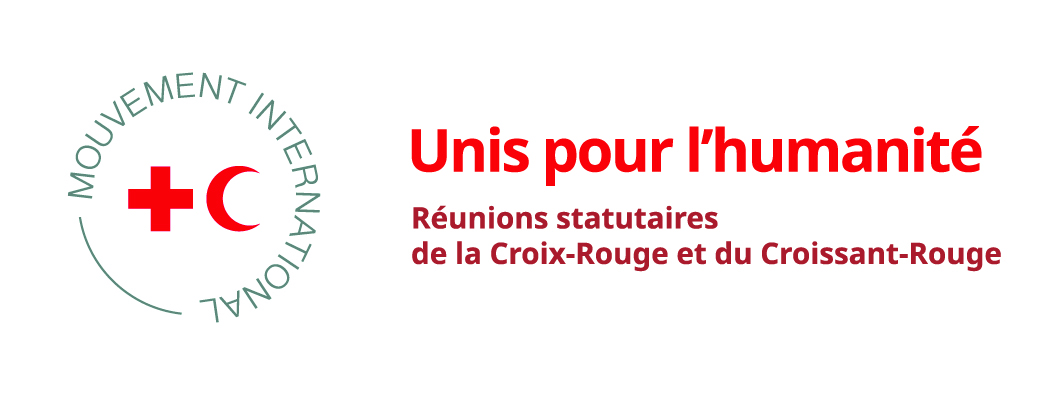A) Objectifs de l’engagement
Insufficient respect for and observance of the rules of international humanitarian law (IHL) remains an abiding problem, despite efforts to improve the prevention, cessation and repression of IHL violations. Violations of IHL also represent one of the main drivers of humanitarian needs in today’s armed conflicts, with devastating effects on the lives of millions of civilians. Respect for IHL remains an indispensable prerequisite for minimizing humanitarian consequences and thereby improving the situation of persons affected by armed conflict. IHL remains as relevant today as ever and can address new developments and challenges in warfare in both international and non-international armed conflicts. Training, dissemination, monitoring, advocacy and other operational measures are required to ensure better compliance with IHL in time of armed conflict.
Recalling the responsibility of States to respect and ensure respect for IHL, the EU and its Member States, the latter together with their joining National Red Cross Societies, in accordance with their respective competences, pledge to:
- use the available mechanisms at national, regional and international level for strengthening respect for IHL and continue to explore opportunities, both legal and operational, to improve IHL compliance;
- continue to adopt the necessary legislative, administrative and practical measures to ensure and further strengthen domestic implementation of IHL;
- strengthen efforts to promote and disseminate IHL inside and outside the EU;
- strengthen the visibility on and awareness-raising of IHL in all relevant fora;
- strengthen evidence-based advocacy in support of IHL compliance;
- strengthen advocacy and guidance linked to key contemporary challenges in armed conflicts, which among others are protection of civilians from any violence or harming, especially children, women and persons with disabilities, protection of education facilities, cultural property, cultural heritage, the natural environment, providing healthcare and objects indispensable to the survival of civilians in armed conflicts, and the protection of humanitarian personnel and objects (such as installations, material, units or vehicles involved in a humanitarian assistance) as well as medical personnel, medical facilities and medical transports.
B) Plan d’action
The EU and its Member States, in accordance with their respective competences, intend to:
- continue to support the dissemination of IHL inside and outside the EU, in particular to the armed forces, to the civilian missions of the EU, as well as armed non-state actors, humanitarian and medical personnel, including national and local humanitarian actors and other groups or individuals who may encounter the application of IHL in their work;
- continue to advocate for compliance with IHL and raise awareness on IHL, among others through annual voluntary reporting on the implementation of the EU’s Guidelines on Promoting Compliance with IHL and awareness-raising events, including at the European Humanitarian Forum;
- continue to strengthen the role, work and visibility of National IHL Committees, and similar entities, and cooperation amongst themselves;
- continue to support the work of the International Committee of the Red Cross on promoting IHL;
- strengthen cooperation with their respective National Red Cross Societies, which, under the Statutes of the International Red Cross and Red Crescent Movement, have a recognized role in assisting their governments in disseminating IHL, and cooperating with them to ensure respect for IHL and to protect the distinctive emblems recognized by the Geneva Conventions and their Additional Protocols;
- strengthen coordination efforts among the EU and its Member States on the promotion of IHL and humanitarian diplomacy in support of IHL compliance;
- continue to support efforts to monitor and analyse data on violations of IHL in order to strengthen evidence-based advocacy on IHL.
In accordance with their respective competences, the EU and its Member States, the latter together with their joining National Red Cross Societies intend to:
- continue to compile national practice on the implementation of IHL and share such practice, for example, in the form of updated national implementation summaries, including when appropriate IHL voluntary reports, and utilize these compilations to explore ways in which to develop the effective implementation of IHL;
- promote and share positive examples of respect for IHL that include the voices of persons affected by armed conflict and their perception of IHL, and highlight its relevance to the general public;
- strengthen adequate IHL training for armed forces and other practitioners called upon to implement or apply IHL, especially judicial actors, such as judges and prosecutors, and evaluate and if necessary, review existing training formats;
- further disseminate IHL to the general public, including youth, to contribute to an environment conducive to respect for the law, and explore the integration of IHL in curricula of educational institutions;
- continue to support the development, use and sharing of innovative forms of IHL dissemination, utilizing digital technology and new media formats.
C) Indicateurs permettant de mesurer les avancées:
–
D) Ressources nécessaires:
–



